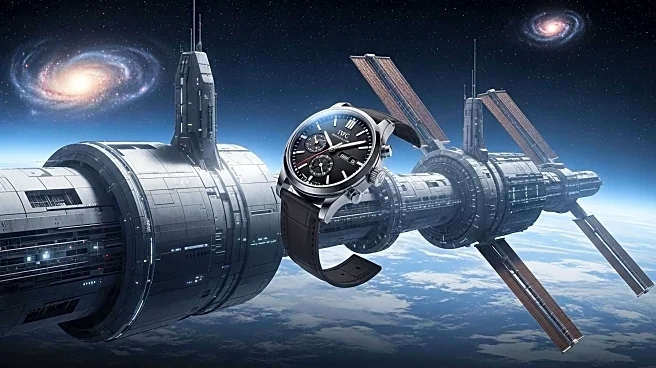What's Happening?
Vast, a company founded in 2021, is set to launch the first commercial space station, Haven-1, next year. The station is designed to be 'human-centric' and will serve both private astronauts and government projects. The Haven-1 Lab, a facility on the station, will focus on research, development, and manufacturing in space. IWC has been named the official timekeeper for this groundbreaking venture, marking a significant step in the company's involvement in space exploration. IWC previously created special chronographs for the Polaris Dawn mission, which were later auctioned for charity.
Why It's Important?
The development of Haven-1 represents a significant milestone in the commercialization of space, potentially opening new avenues for private and governmental collaboration in space research and habitation. This initiative could accelerate advancements in space technology and infrastructure, fostering innovation in long-term human living solutions beyond Earth. The involvement of IWC as the official timekeeper highlights the growing intersection between luxury brands and space exploration, potentially influencing marketing strategies and consumer interest in space-related products.
What's Next?
As Vast prepares for the launch of Haven-1, the company will likely focus on finalizing construction and ensuring the station meets all necessary safety and operational standards. The collaboration with IWC may lead to further partnerships with other brands interested in space ventures. The success of Haven-1 could pave the way for additional commercial space stations, expanding opportunities for research and development in space.
Beyond the Headlines
The launch of Haven-1 could have broader implications for international space policy and governance, as commercial entities increasingly participate in space exploration. This development may prompt discussions on regulatory frameworks and the ethical considerations of private sector involvement in space. Additionally, the project could inspire cultural shifts in how society views space travel and habitation, potentially influencing future generations' aspirations and educational pursuits.








